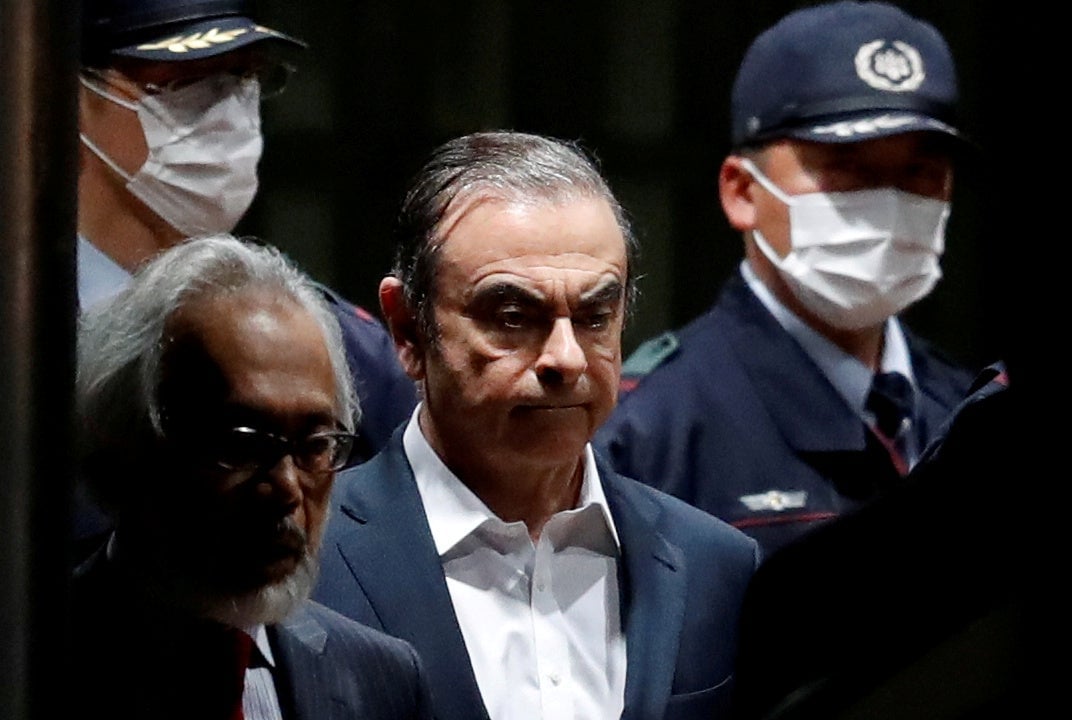Why did Carlos Ghosn flee to Lebanon?
Carlos Ghosn’s clandestine trip from Japan to Lebanon has made headlines around the world. The former head of Renault-Nissan, who was charged with financial misconduct in Japan and put under close supervision by the authorities, jumped bail. He reportedly arrived in Lebanon on a private jet, possibly via Turkey.


Carlos Ghosn’s clandestine trip from Japan to Lebanon has made headlines around the world. The former head of Renault-Nissan, who was charged with financial misconduct in Japan and put under close supervision by the authorities, jumped bail. He reportedly arrived in Lebanon on a private jet, possibly via Turkey.
The logistics of his travel triggered much speculation.
Ghosn is a well-known figure in Japan. As the savior of one of its largest car companies, he even featured as a superhero in a manga comic book series. Not only is he immediately recognizable anywhere he goes in Tokyo, Ghosn’s lawyer in Japan, Junichiro Hironaka, said he still had his client’s three passports—issued by Brazil, France, and Lebanon. Cryptically, Hironaka added (paywall) that it might have taken a “big organization” to arrange Ghosn’s departure from Japan.
Ghosn’s statement on arriving in Lebanon didn’t address the mysterious circumstances of his departure. But it did suggest relief at being in Lebanon. “I am now in Lebanon and will no longer be held hostage by a rigged Japanese justice system where guilt is presumed,” he said. “I have not fled justice—I have escaped injustice and political persecution.”
Earlier this year, Ghosn’s wife, Carole, alleged that he was a victim of Japan’s “hostage justice” system, which is meant to “coerce confessions.”
The authorities in Lebanon, a country currently roiled by political unrest and a debt crisis, initially made no official comment. But France’s junior economy minister Agnes Pannier-Runacher said she was “very surprised” by the news, that Ghosn was “not above the law,” and that “if a foreign citizen fled French justice we would be really angry.” She added that all French citizens were entitled to French consular support.
But Ghosn may have no reason to turn to France for help. He has extensive ties to Lebanon, which put him on a postage stamp in August 2017. (Incidentally, it is currently out of stock.) Even after his arrest in Japan last year, Lebanon’s foreign ministry declared its support for Ghosn, as “a well-known Lebanese citizen who represents one of Lebanon’s success stories abroad.”
Ghosn, who was born in Brazil to parents of Lebanese descent, is a member of the disproportionately large, and overwhelmingly rich and successful, Lebanese diaspora. According to various estimates, five times as many people of Lebanese descent live outside Lebanon than the roughly 4 to 6 million people within the country.
Some years ago, Nassim Nicholas Taleb, the Lebanese-American author of The Black Swan and Antifragile, told Steven Dubner of Freakonomics Radio that, “if you look at 10 or 20 or 30 of the richest countries around the world, among the richest people in those countries is someone from Lebanon.” These include Mexican tycoon Carlos Slim, actress Salma Hayek, singer Shakira, the late heart surgeon Michael DeBakey, fashion designer Elie Saab, former Caltech vice president Charles Elachi, and Paul Orfalea, who founded the copy-and-print services company Kinko’s. Taleb added that the Lebanese diaspora’s success comes from resilience born of the country’s history and “continuous fear of chaos.”
Ghosn spent part of his boyhood in Beirut, before going to France for further education. He has invested in businesses in Lebanon, including a winery, a bank, and several construction projects. In 2003, in a speech in Beirut, Ghosn suggested that Lebanon could learn from his turnaround of Nissan. Indeed, the former auto exec has sometimes mentioned as a possible candidate for president of Lebanon.
Ghosn’s decision to flee to Lebanon underlines the apparent strength of the diaspora’s bonds to the mother country. But some might say that Lebanon offers Ghosn something more immediately valuable in his current situation: It doesn’t have an extradition treaty with Japan.